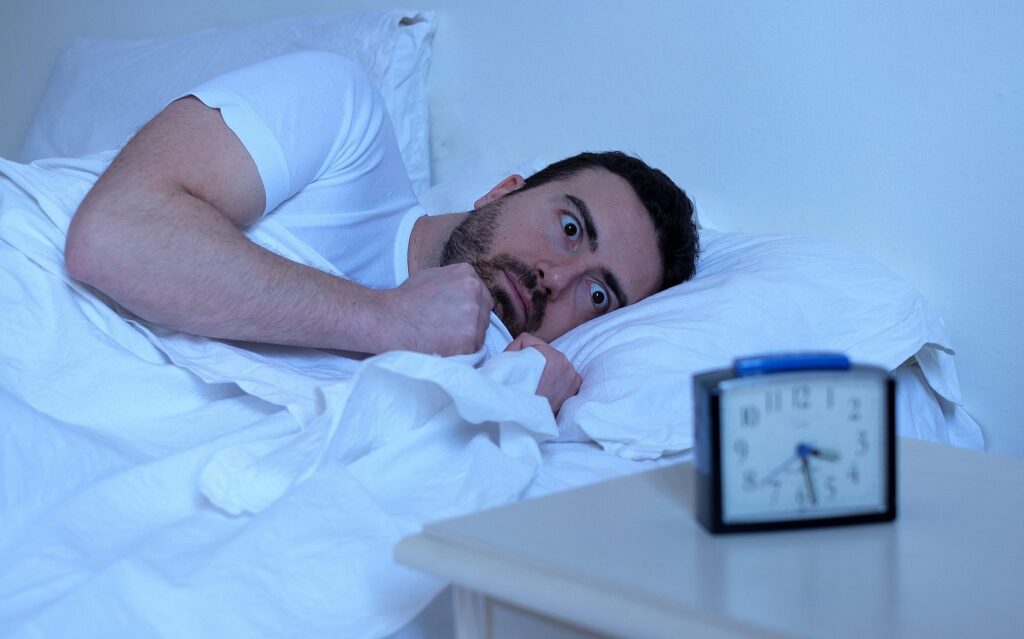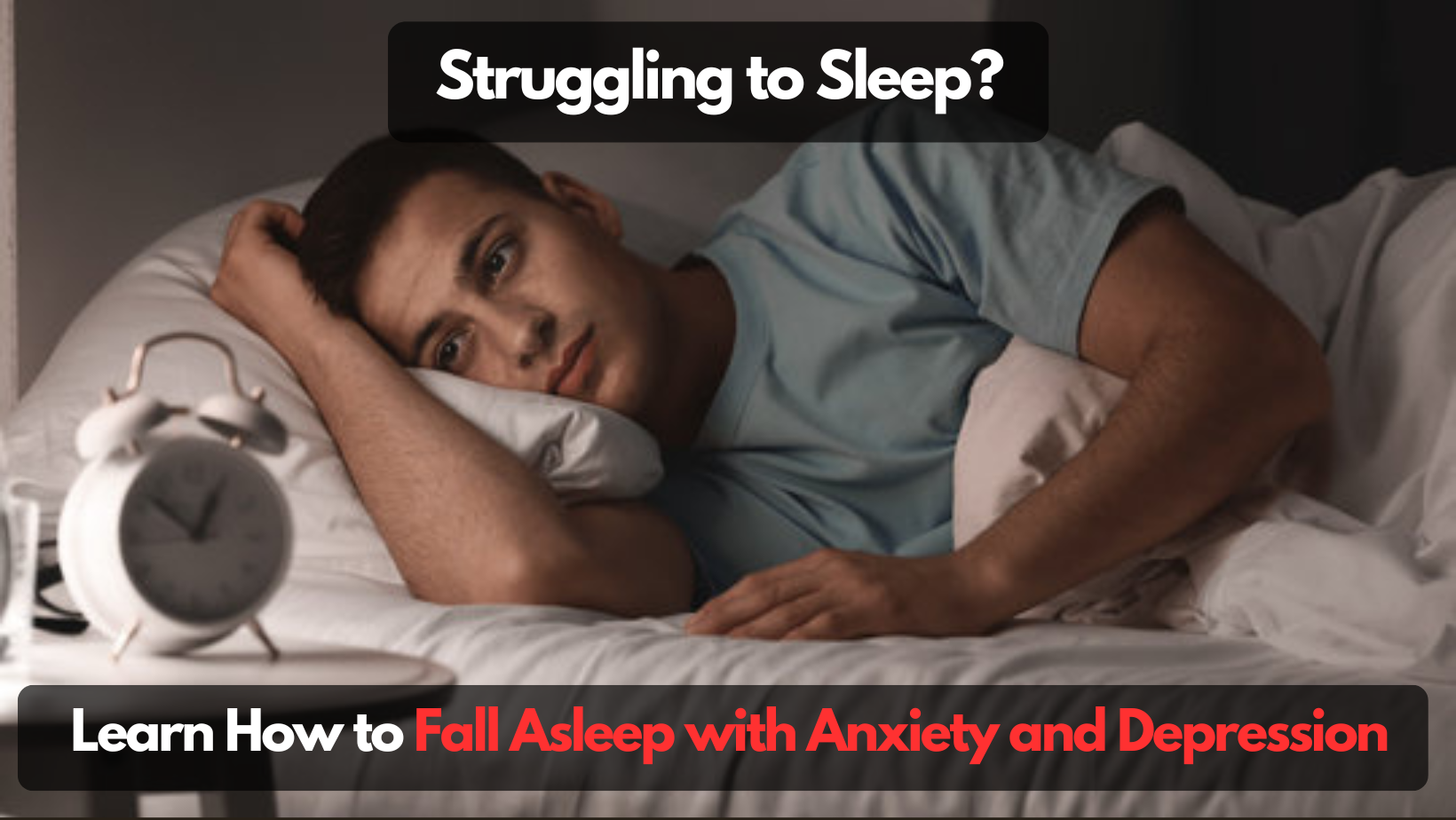
How to Fall Asleep with Anxiety and Depression: Effective Strategies for a Restful Night
For most people, bedtime is a welcome break after a busy day. But if you’re dealing with anxiety and depression, those quiet night time hours can intensify your worries and make it hard to fall asleep. Anxiety already takes a toll on your mind and body during the day, but at night, it can be even harder to quiet your thoughts and drift off to sleep. This constant struggle can lead to a frustrating cycle: anxiety makes it difficult to sleep, and lack of sleep worsens anxiety and depression.
If you’re stuck in this vicious cycle, don’t worry—there are ways to break free. In this article, we’ll explain how anxiety and depression affect your sleep, and offer practical tips to help you fall asleep faster, stay asleep, and wake up feeling more refreshed.
Understanding the Link Between Anxiety, Depression, and Sleep
Anxiety and depression are closely tied to sleep problems. According to mental health experts, both conditions can disrupt the body’s natural sleep processes. Anxiety can trigger the body’s alert system, making it hard to relax, while depression can alter sleep patterns, causing either insomnia or excessive sleeping.
For those with anxiety, the brain often perceives threats or worries as more urgent at night, keeping you on edge even when you’re physically tired. Depression, on the other hand, can affect your sleep-wake cycle, making it difficult to find a consistent sleep pattern. Both conditions also interfere with the quality of your sleep, leaving you feeling exhausted and unrefreshed.
How Sleep Works
To understand why anxiety and depression can disrupt sleep, it’s helpful to know how sleep works. Sleep is regulated by two main forces:
- Sleep Pressure: The longer you stay awake, the more sleep pressure builds, signaling your body that it’s time to rest. After 16 hours of being awake, you naturally feel tired.
- Circadian Rhythm: Your internal clock helps regulate your sleep-wake cycle, sending alerting signals during the day to keep you awake and tapering off at night to allow sleep pressure to take over.
When you’re anxious, your brain amplifies the alerting signal, making it harder to sleep. Depression can throw off your circadian rhythm entirely, either delaying sleep or causing irregular sleep patterns.
The Effects of Sleep Deprivation on Anxiety and Depression
Adults need between 7 to 9 hours of sleep each night. Chronic sleep deprivation can make anxiety and depression worse by contributing to:
- Mood instability and irritability
- Increased feelings of hopelessness or worry
- Difficulty concentrating or making decisions
- Physical health problems such as high blood pressure, heart disease, and a weakened immune system
If your sleep struggles have persisted for more than a few weeks, it’s important to take steps to address the root cause of your sleep difficulties, whether it’s anxiety, depression, or both.
Tips to Fall Asleep with Anxiety and Depression
Even though anxiety and depression can make sleep elusive, there are strategies you can use to calm your mind and body for better rest. Here are some effective tips to help you fall asleep faster and improve the quality of your sleep.
1. Practice Relaxation Techniques
Relaxation techniques can help calm your nervous system and make it easier to fall asleep. Here are some that work well:
- Deep Breathing: Focus on your breath to shift attention away from anxious thoughts. Try the 4-7-8 breathing method: inhale for 4 seconds, hold for 7 seconds, and exhale for 8 seconds.
- Progressive Muscle Relaxation: Anxiety often causes muscle tension. Relax your body by tensing and releasing each muscle group, starting with your toes and working your way up.
- Guided Imagery: Visualize peaceful, calming scenes to redirect your mind from worries. Whether it’s imagining a serene beach or a quiet forest, choose an image that helps you relax.
- Mindfulness Meditation: Mindfulness practices can help slow down racing thoughts and reduce anxiety. Guided meditation apps or videos can walk you through the process, making it easier to focus.
2. Create a Worry Journal
Racing thoughts often intensify when you’re trying to fall asleep. To quiet your mind, try keeping a notebook or journal next to your bed. Write down any worries, to-do lists, or thoughts that are keeping you up. This can help clear your mind and make it easier to sleep.
3. Get Moving During the Day
Exercise is a proven way to reduce anxiety and depression, and it also promotes better sleep. Aim for 30 minutes of moderate physical activity, like walking, biking, or yoga, at least a few times a week. Try to get outside in natural sunlight to boost your mood and regulate your circadian rhythm.
4. Create a Sleep-Friendly Environment
A calming bedroom environment can make a big difference in how well you sleep. Make sure your room is:
- Cool: A temperature between 60-67°F (15-19°C) is optimal for sleep.
- Dark: Use blackout curtains or a sleep mask to block out light.
- Quiet: Consider using earplugs, a white noise machine, or a fan if you’re sensitive to noise.
Declutter your space and make sure your bed is comfortable. Avoid using your bed for activities like watching TV or working to train your brain to associate it with sleep.
5. Limit Screen Time Before Bed
Blue light from screens can interfere with your body’s natural sleep signals. Try to avoid screens (phones, tablets, TVs) for at least an hour before bed. Instead, wind down with a book, soothing music, or relaxation exercises.
6. Set a Consistent Sleep Schedule
Going to bed and waking up at the same time every day, even on weekends, helps regulate your sleep-wake cycle. This consistency signals to your body when it’s time to sleep and when it’s time to wake up, helping you fall asleep more easily over time.
7. Avoid Lying Awake in Bed
If you find yourself awake for more than 20 minutes, get out of bed and do something relaxing until you feel sleepy. This helps break the cycle of associating your bed with sleeplessness and frustration.
Seeking Professional Help
If you’ve been struggling with sleep due to anxiety or depression for more than three weeks, it’s a good idea to talk to a healthcare provider. Your primary care doctor can help identify whether a sleep disorder, anxiety, or depression is the root cause of your sleep problems. They may refer you to mental health professionals or sleep specialists for further evaluation and treatment.
Final Thoughts
Falling asleep with anxiety and depression can be challenging, but with the right strategies, it’s possible to improve your sleep quality and overall well-being. By incorporating relaxation techniques, creating a sleep-friendly environment, and sticking to a regular sleep schedule, you can start getting the rest you need. If your sleep problems persist, don’t hesitate to seek help from a healthcare provider who can guide you toward the right treatment options.
By optimizing your night time routine and addressing underlying anxiety and depression, you can break the cycle and start getting the restful sleep you deserve.
